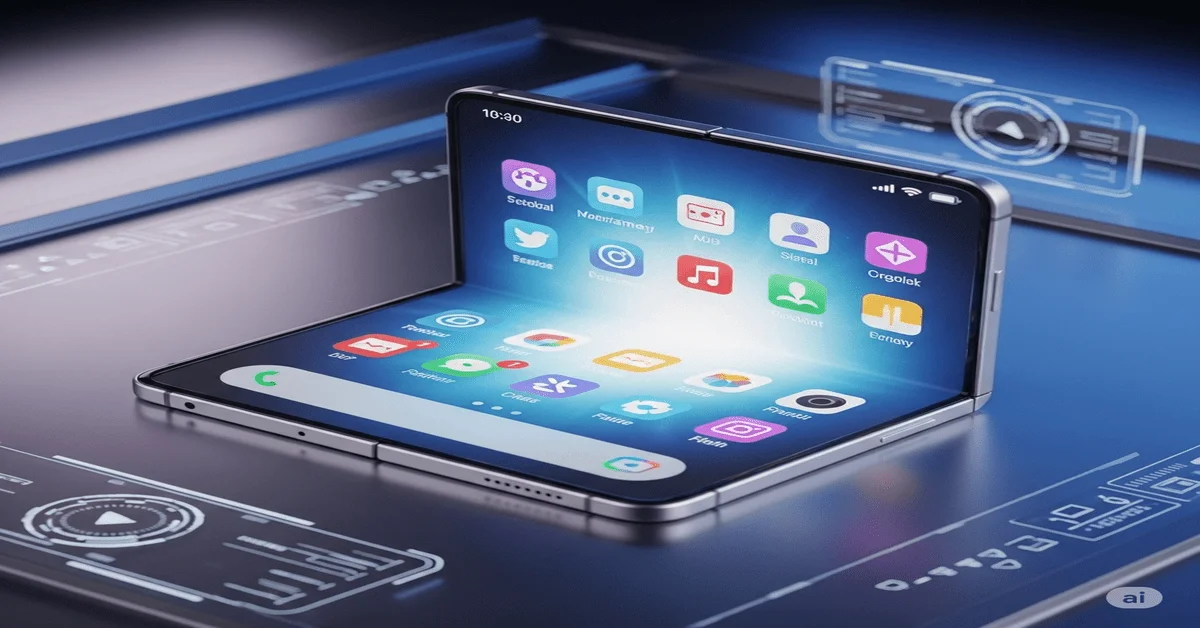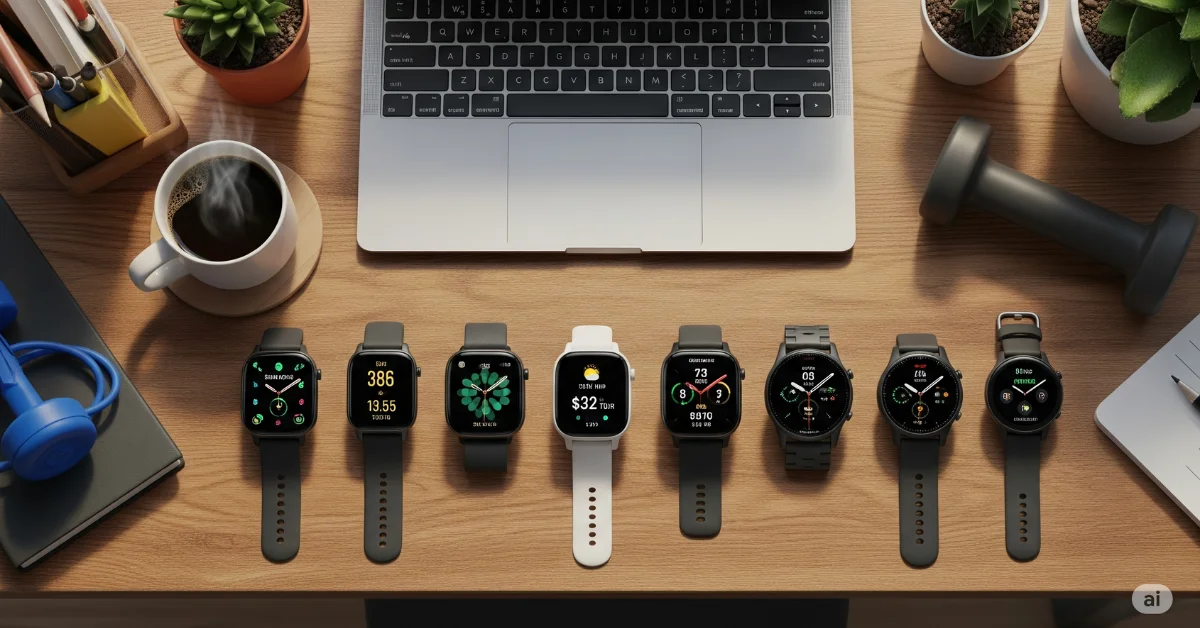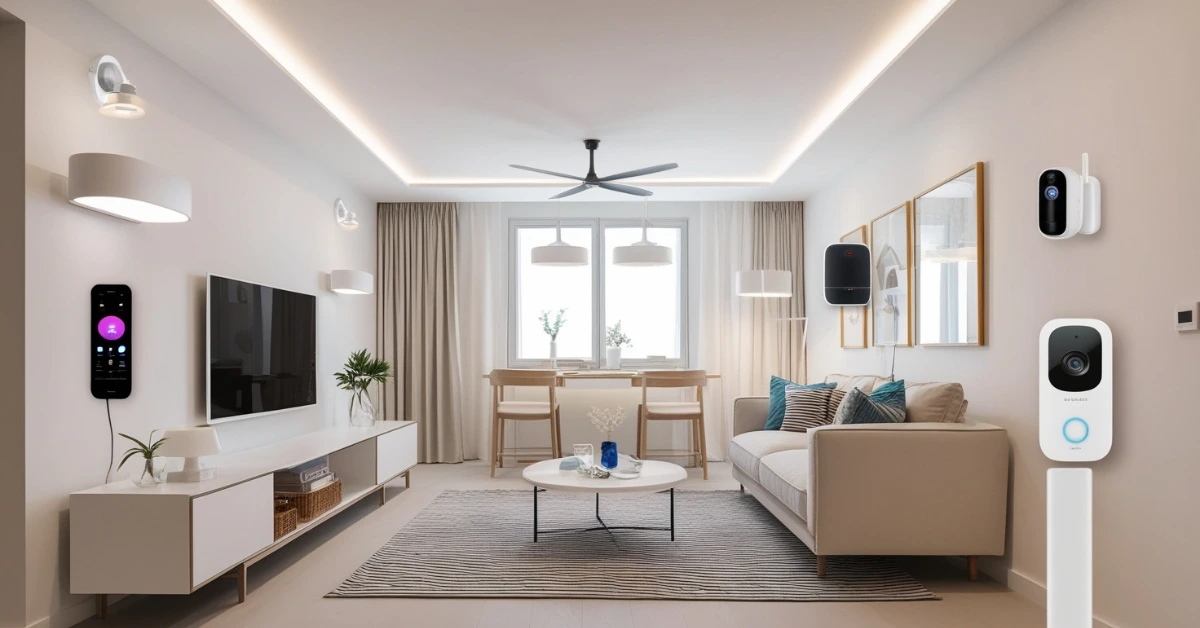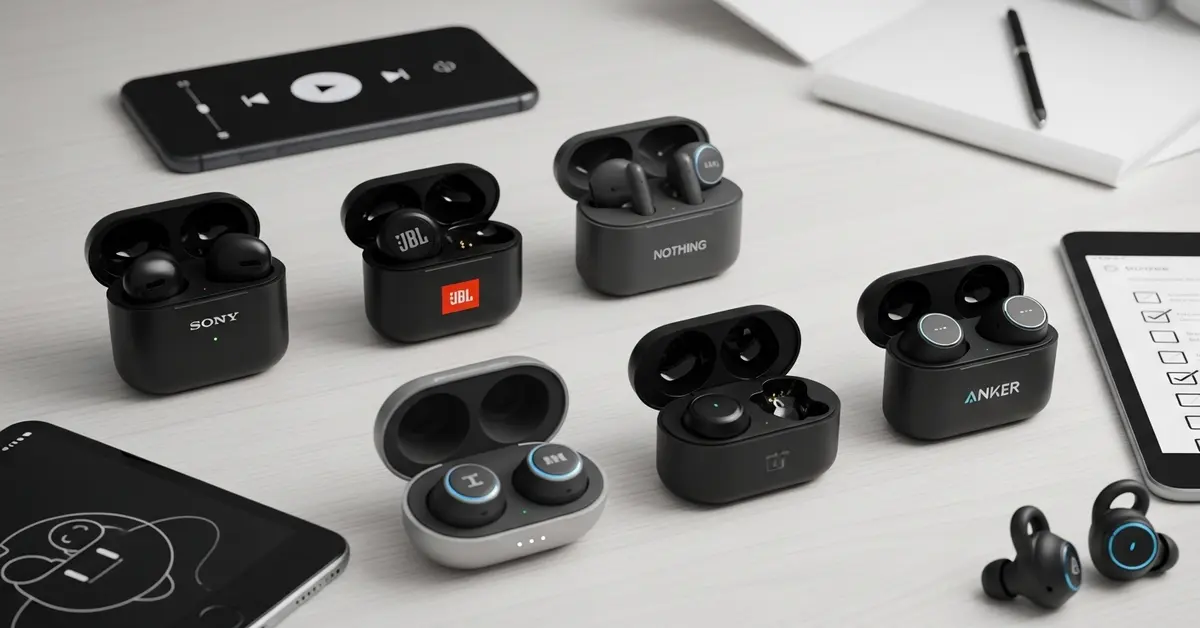Foldable phones were once a futuristic dream, seen only in sci-fi movies or tech demos. But today, they’re very real and reshaping the world of smartphones in exciting new ways. Major brands like Samsung, Motorola, Huawei, and Google are driving innovation by releasing foldable devices that are both stylish and functional.
Why Foldable Phones Are Redefining Mobile Use?
Whether you want a phone that turns into a tablet or one that folds compactly into your pocket, foldable phones offer a fresh and powerful way to use mobile tech. But they’re more than just a design upgrade; they change how we multitask, work, and entertain ourselves on the go.
Let’s dive deep into how foldable phones are changing the mobile landscape.
What Are Foldable Phones?
A foldable phone is a smartphone with a flexible screen that bends without breaking. Instead of traditional rigid glass, these devices use flexible OLED panels or ultra-thin glass (UTG), allowing them to open and close smoothly.
There are two main types of foldable phones:
- Book-style foldables: Open horizontally, much like a traditional book, and showcase a spacious inner screen when unfolded.
- Clamshell foldables: Flip open vertically like old-school flip phones. Compact and stylish. Example: Motorola Razr 40 Ultra
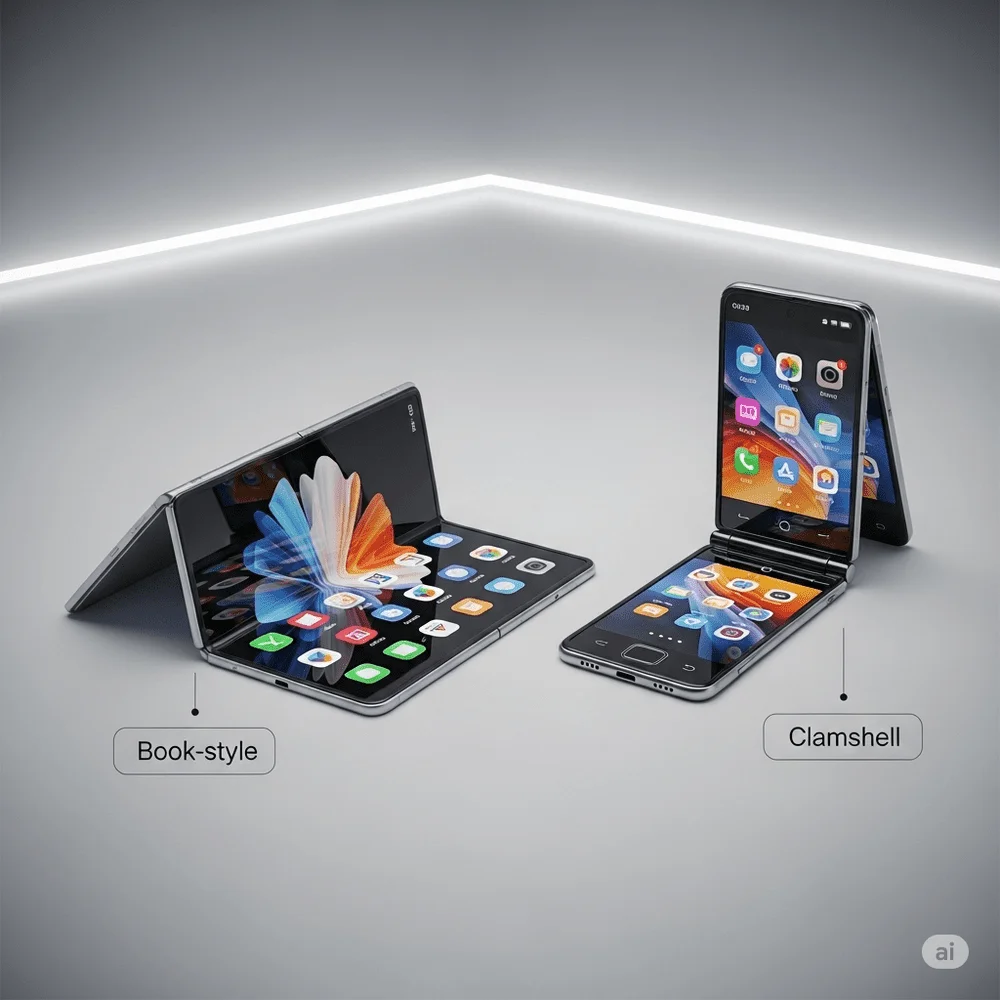
Each style brings its own unique experience to users who want more screen without sacrificing portability.
The Evolution of Foldable Technology
The first foldable phones were exciting but had flaws: fragile screens, weak hinges, and high prices. Fast forward a few years, and today’s foldables have improved dramatically.
Key advancements include:
- Flexible OLED technology: These displays can bend repeatedly without losing quality.
- Durable hinge systems: Modern hinges are tested to survive hundreds of thousands of folds.
- Ultra-thin glass: Offers better scratch resistance and feels more premium than plastic screens.
- Water and dust resistance: Newer models are sealed better against the elements.
Thanks to these improvements, foldables are now reliable enough for daily use.
Why Foldable Phones Are Gaining Attention?
Foldable phones are changing the smartphone game in more ways than one. Here’s why people are excited:
- Tablet-like experience in your pocket: Get a bigger screen without carrying a bulky device.
- Multitasking like a pro: Open multiple apps side-by-side—perfect for power users.
- Hands-free functionality: Fold the phone halfway to prop it up for video calls or content viewing.
- Better productivity: Read documents, edit files, or take notes all on a spacious display.
- Cool, futuristic designs: Foldables stand out from the usual slab-style phones.
These aren’t just phones, they’re tools for work, entertainment, and creativity.
Popular Foldable Phones in the Market
Several big brands have joined the foldable race, each offering unique features and experiences:
Samsung Galaxy Z Fold5
- Book-style foldable with 7.6-inch inner display
- S Pen support and multitasking features
Samsung Galaxy Z Flip5
- Clamshell design with a customizable cover screen
- Compact, fashionable, and great for selfies
Google Pixel Fold
- Offers strong software integration
- Wide screen and excellent cameras
Motorola Razr 40 Ultra
- Stylish retro flip phone
- Large outer display for quick interactions
Huawei Mate Xs 2
- Outward folding design with excellent build
- Strong battery life, though limited availability globally
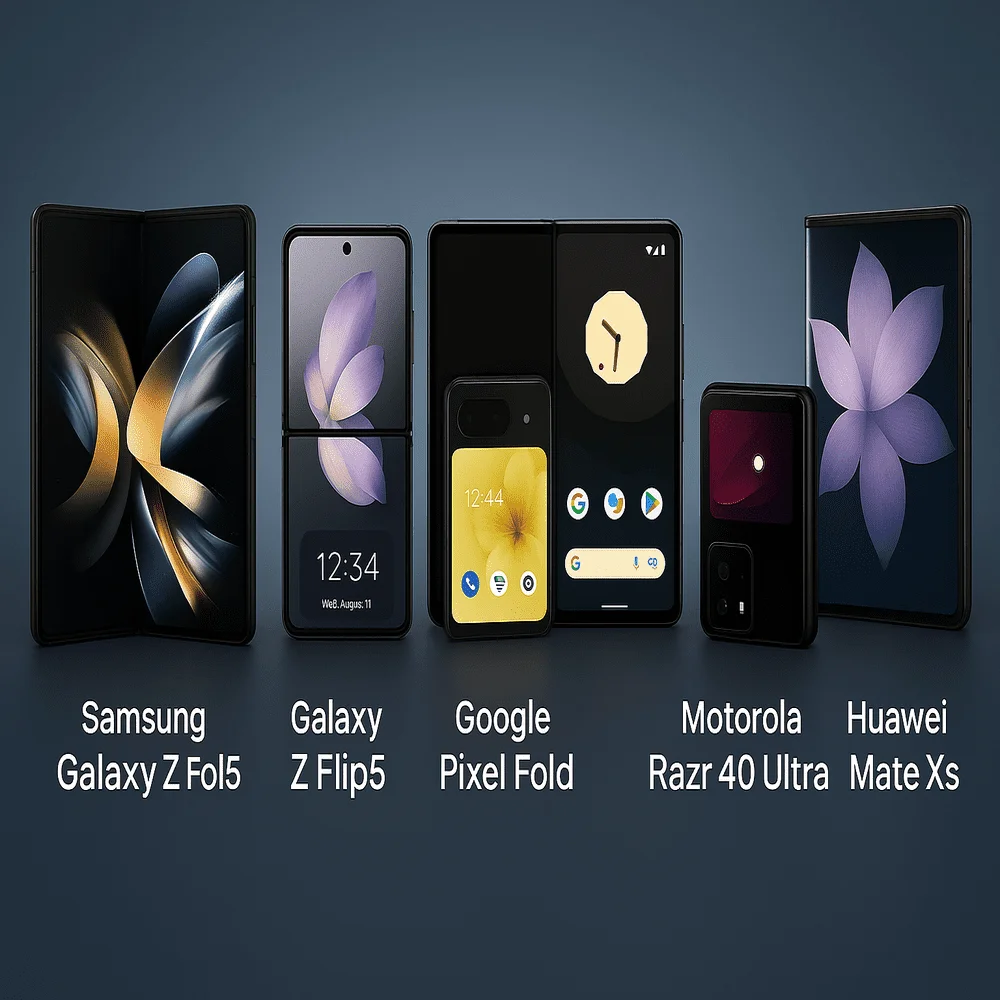
These devices show how the foldable category is growing fast and pushing the limits of what smartphones can do.
Real-Life Benefits of Foldables
Here’s how foldables enhance daily smartphone usage:
- Multitasking: Run up to three apps at once on a single screen.
- Media and entertainment: Movies, games, and books are more immersive on bigger displays.
- Work on the go: Access spreadsheets, emails, and video calls without needing a laptop.
- Flexible viewing: Prop up your device for YouTube, TikTok, or Zoom calls hands-free.
- Reading and writing: Foldables are perfect mini-notebooks and e-readers.
These features combine productivity, flexibility, and convenience into one device.
Challenges Foldable Phones Still Face
While foldable phones show great potential, they still come with certain drawbacks:
- High cost: Most foldables start above $1000, making them a premium choice.
- Durability concerns: While better than before, foldable screens are still more delicate.
- Bulkiness: Foldables are often thicker and heavier than regular phones.
- Battery limitations: Larger screens require more power, but battery sizes are limited by design.
- App optimization: Not all apps work perfectly with foldable screen formats yet.
Still, these issues are being tackled with every new generation.
Foldables vs Traditional Smartphones
Here’s a quick comparison:
| Feature | Foldable Phones | Traditional Phones |
| Screen Size | Expands when unfolded | Fixed display |
| Portability | Compact when closed | Depends on model |
| Multitasking | Excellent, supports multi-window | Limited |
| Durability | Improving, still a concern | More rugged |
| Price | Expensive | Budget to premium options |
| Innovation | High-tech and modern | Familiar and stable |
Foldables offer a new experience, but traditional phones are still practical and more affordable.
The Future of Foldable Tech
Foldable phones are just the beginning. Here’s what we might see next:
- Lower prices: As production improves, prices will become more reasonable.
- Slimmer, lighter models: Foldables will become easier to carry.
- Better app support: More developers are optimizing apps for foldables.
- Rollable and stretchable screens: Beyond folding, screens may start rolling or stretching.
- Eco-friendly designs: Future models may use recyclable materials and more efficient power systems.
- Foldable laptops and tablets: The tech might expand into larger devices, too.
The future is flexible literally!
Should You Buy a Foldable Phone?
Ask yourself:
- Do you want a larger screen for gaming, reading, or productivity?
- Can you afford the higher price tag?
- Are you excited about trying the latest tech?
If yes, a foldable phone could be a great fit. But if you’re looking for a more budget-friendly, durable, or simple device, a regular smartphone may still be the better choice, for now.
Final Thoughts
Foldable phones are revolutionizing smartphone design with larger screens, advanced multitasking, and futuristic styles. While some challenges remain, ongoing improvements in durability and affordability suggest they could soon become the new standard in mobile technology. Foldables aren’t just a trend; they’re reshaping how we use our devices.
